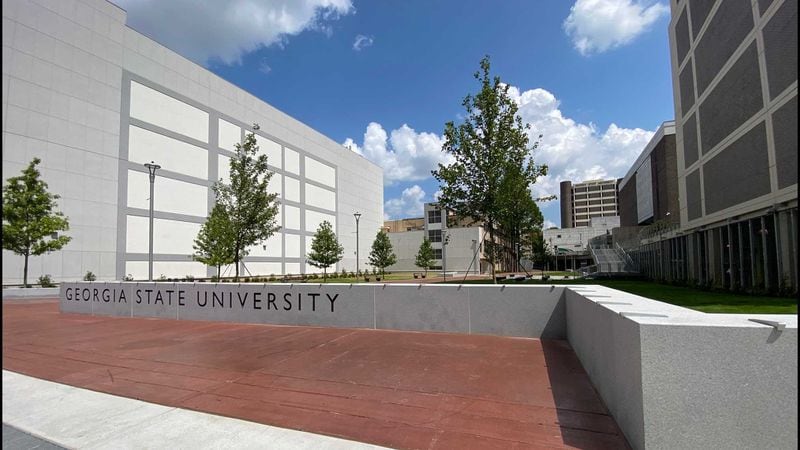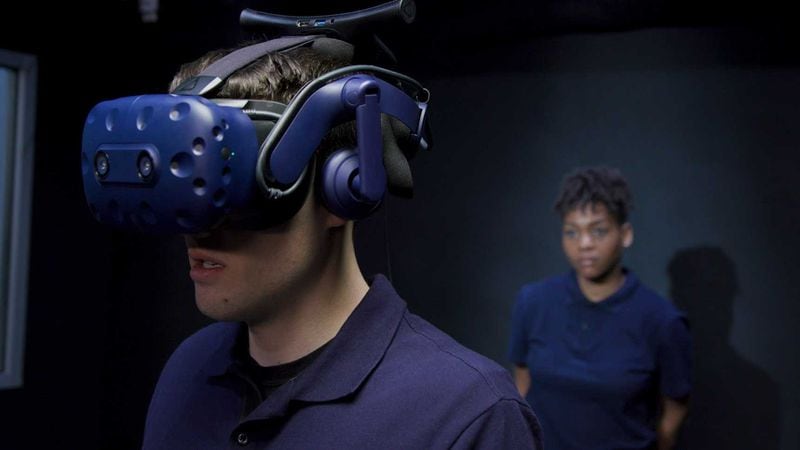The dust has not settled in the battle between University System of Georgia faculty and administrators over recent changes to its post-tenure review process. In this edition of AJC On Campus, we have more about the latest move in this saga, the system’s fall enrollment numbers and Morehouse College’s involvement in a police training technique.
USG post-tenure review battle enters new phase
The American Association of University Professors warned a few weeks ago its dispute with the University System of Georgia over proposed changes to its post-tenure review process was not over when the state Board of Regents voted for the revisions.
The association on Thursday announced it’s launching an investigation of those changes.
The association is worried the changes will restrict academic freedom and make it easier for administrators to fire faculty members. An investigation could lead to a decision to censure the board, which would be a public rebuke of the system. Some professors say censure could hurt recruiting efforts of top professors from other states.
Accreditation agency thoughts on post-tenure review
The leader of the agency that provides accreditation to most Georgia colleges and universities wrote an interesting email reply to United Campus Workers of Georgia leaders and copied University System of Georgia officials about its post-tenure review changes and critics of the plan.
The email, written by Southern Association of Colleges and Schools Commission on Colleges President Belle Wheelan the day after the state’s Board of Regents approved the changes, wonders if faculty had enough time to review the revisions before it was put together. Wheelan noted “it does appear that there were indeed faculty involved in the development of the policy.”
Wheelan writes it’s best to get ample faculty input, but not a requirement.
“So, from an accreditation standpoint, there is nothing for SACSCOC to do,” she wrote. “Perhaps had this issue been brought to my attention sooner (as in BEFORE the meeting at which the Board was taking the vote), I might have had more of an opportunity to ferret out details; however, it seems that there is not an accreditation issue.”
This item was updated to clarify that the email was message was addressed to the campus workers organization and University System officials were copied.
Most Georgia public universities see enrollment drop
Enrollment declined this fall at all but five of Georgia’s public colleges and universities, according to a report Monday from the University System of Georgia. The declines were greater at smaller schools outside the Atlanta area, continuing a trend of recent years. The Georgia system’s total enrollment declined for the first time in eight years, by 0.2% to 340,638 students. Here’s our report on the numbers.
Georgia State business school eliminates GMAT/GRE requirements
Georgia State University, which has one of the state’s top-rated graduate business schools, announced last week it is eliminating GMAT/GRE requirements scores from the admissions process for its MBA and master’s portfolio, effective immediately.
“Three factors drove the decision to eliminate the standardized test score requirement from graduate applications to (the J. Mack Robinson College of Business),” said Brian Jennings, associate dean for graduate programs and executive education. “GMAT/GRE scores are not necessary to predict classroom success; the tests are a barrier to entry and perpetuate systemic inequities; and test performance is immaterial to the ultimate measure – career outcomes and market demand for our students.”
Robinson began waiving GMAT/GRE requirements for all applicants to its MBA programs in 2018. The college temporarily dropped the requirement for standardized test scores from applications to all master’s-level programs at the start of the coronavirus pandemic.
Morehouse College partners with Google on police training technology
Morehouse College is involved in a new effort to train police in de-escalation tactics.
The college is involved in a partnership with Google’s Jigsaw technology use a virtual reality platform called “Trainer” to provide law enforcement instructors and criminal justice scholars with an immersive environment to train and evaluate officer performance.
Credit: Eric Stirgus
Credit: Eric Stirgus
“The focus for this pilot will be centered around three stakeholders: the officer, the bystander, and an adolescent participant,” said Kinnis Gosha, Morehouse’s division chair of experiential learning and interdisciplinary studies. “Our hopes are that we can understand the effectiveness of the software as it currently stands and what enhancements can be made to make the software more effective.”
Morehouse will study Trainer’s effect on officers’ empathy toward Black Americans and use the technology to strengthen anti-bias law enforcement trainings. Students can serve as research assistants and training co-facilitators.
Georgia HBCU students take their concerns to Washington
Students from Georgia’s historically Black colleges and universities last week voiced their concerns in the nation’s capital about funding disparities for their schools.
Some attended a rally Wednesday near the U.S. Supreme Court for a rally supporting additional funding for community colleges in President Joe Biden’s Build Back Better plan. Biden’s proposal for free tuition to those schools was a casualty of the negotiations among congressional Democrats.
On Friday, students joined a rally at the U.S. Department of Education for support of student loan debt cancellation, funding for HBCUs and debt-free college.
A few dozen students from Atlanta’s HBCUs slept in tents near the Atlanta University Center library for several nights a couple of weeks ago to highlight the need for better student housing and federal funding for their schools. Students leaders met with the presidents of those schools. The students called the meetings productive and took down the tents, but say more work is needed to meet their goals.
TCSG picks new president for Wireglass Georgia Tech
The Technical College System of Georgia last week removed the interim title from DeAnnia Clements and named her president of Wireglass Georgia Technical College. Clements had been the school’s interim president for six months.
Clements’ TCSG career began in 1999 as an adjunct instructor for South Georgia Technical College. She was a Computer Information Systems instructor for East Central Technical College, which later merged to become Wiregrass Georgia Technical College in 2010. She’s been dean of Professionals Services, of Allied Health, Associate Vice President for Academic Affairs, and Vice President for Academic Affairs.
“DeAnnia has an impressive background at TCSG and the leadership experience in technical education to lead Wiregrass Georgia Technical College. I know she will do a great job continuing to focus on student needs and developing a skilled workforce for business and industry in the region,” TCSG Commissioner Greg Dozier said in a statement.
The college’s main campus is in Valdosta. It has two additional campuses and a center near the Georgia-Florida border.
Antisemitism an ongoing problem on college campuses
Hillel International and the Anti-Defamation League released a study last week that found one in three students personally experienced antisemitic hate directed at them in the last academic year.
Most students, though, did not report it, the study found.
Nearly 80% of students who reported antisemitism reported that it happened to them more than once during the last academic year. The most common incidents were offensive comments online or in person, and damage or defacement of property.
Several Georgia universities have investigated antisemitic incidents in recent years. A few Georgia schools have large Jewish enrollments, such as Emory University in DeKalb County. One in six Emory undergraduate students — 1,200 — are Jewish undergraduate students, according to Hillel.
North Georgia gets $1.4 million grant to help potential students
The University of North Georgia was awarded nearly $1.4 million over five years to launch a program that aims to assist middle and high school students from disadvantaged backgrounds who have the potential to succeed in college.
UNG aims to enlist 500 students each year for five years for the program, called Talent Search. One-half of those students will come from a middle school and the rest from a high school. Gainesville City Schools will partner with UNG on the program.
Students will receive academic, career and financial counseling to help them graduate from high school and continue onto and complete college.
Brenau University to close Fairburn campus
Brenau University said last week it will no longer operate at its south Fulton County campus, located in Fairburn, effective May 31.
Brenau began offering courses in Fairburn in 2009 at a facility constructed and managed by the city. The number of students at Fairburn taking classes remotely has increased significantly in recent years, with a major shift occurring during the coronavirus pandemic, officials said.
Brenau has campuses in Gainesville. It offers classes online, on ground and hybrid in Norcross.
Coming up:
Clayton State University’s new president, T. Ramon Stuart, is scheduled to give his first State of the University address at noon Wednesday. Stuart plans to discuss his vision for the university. It can be viewed online at https://www.clayton.edu/about/office-of-the-president/state-university-address.
Georgia Military College on Wednesday is holding a groundbreaking for its Center for Leadership. The facility will be a single-story, freestanding building encompassing approximately 28,937 square feet. and include an 820-seat theater and lecture hall. The construction cost is approximately $11 million and it’s fully funded by Georgia Military College, according to a spokesperson.









